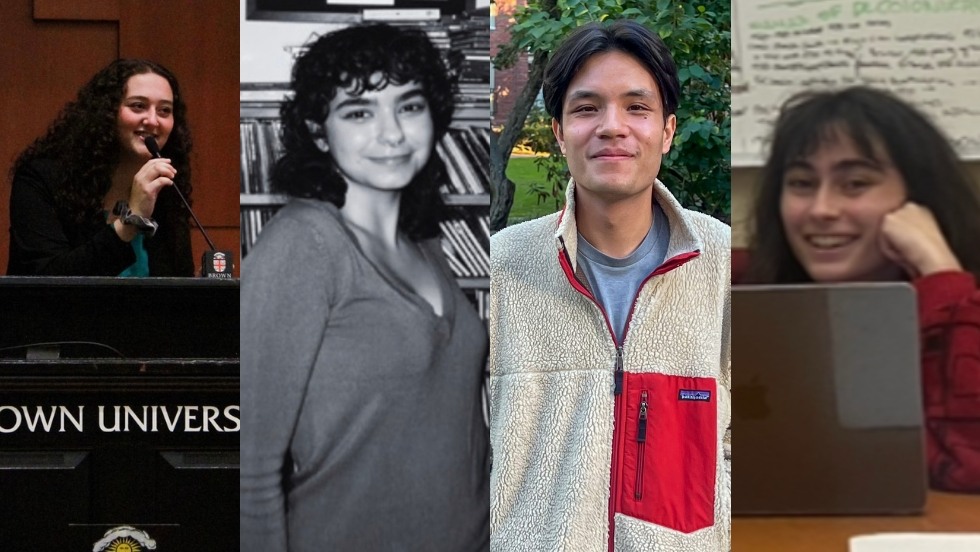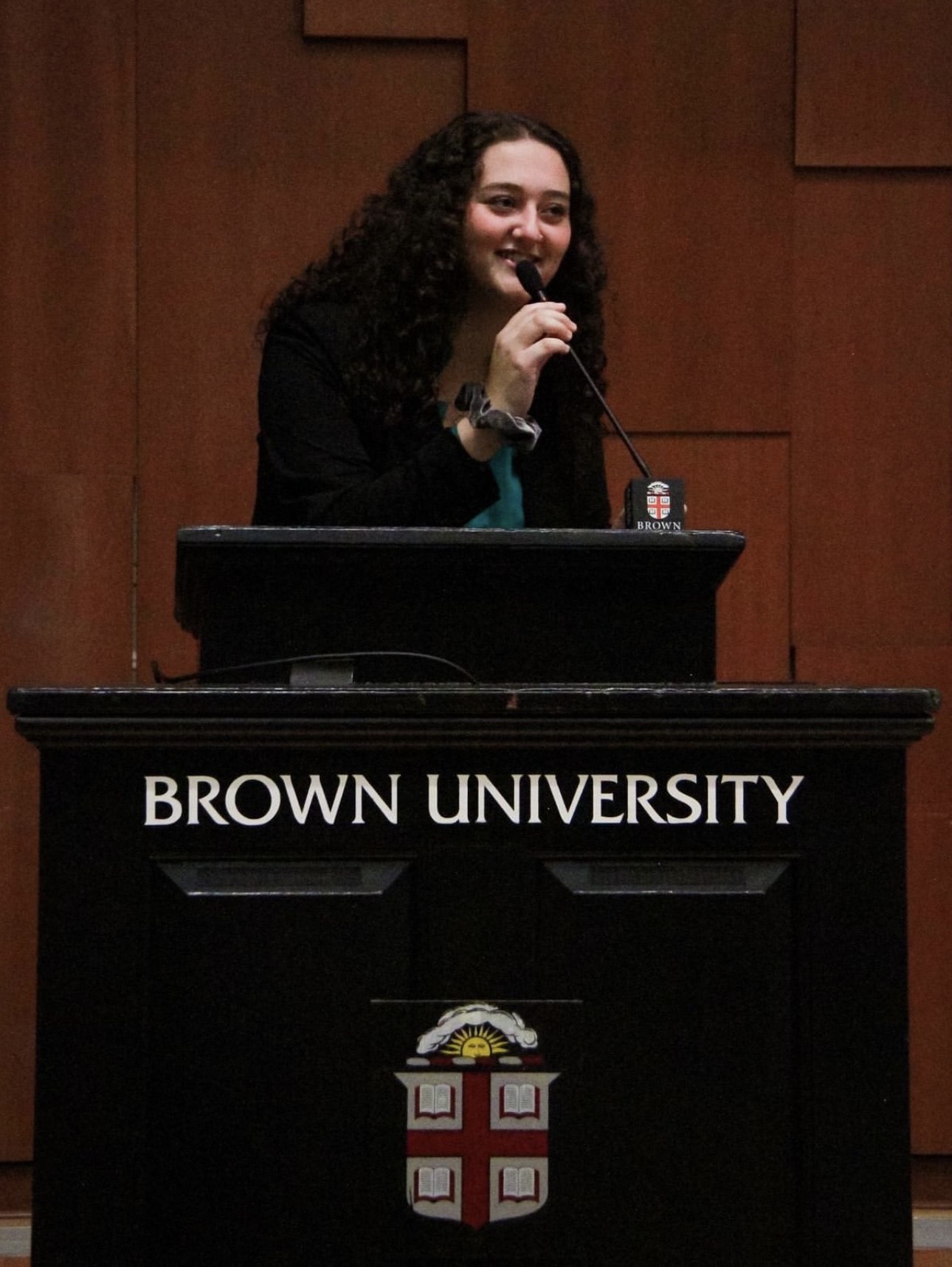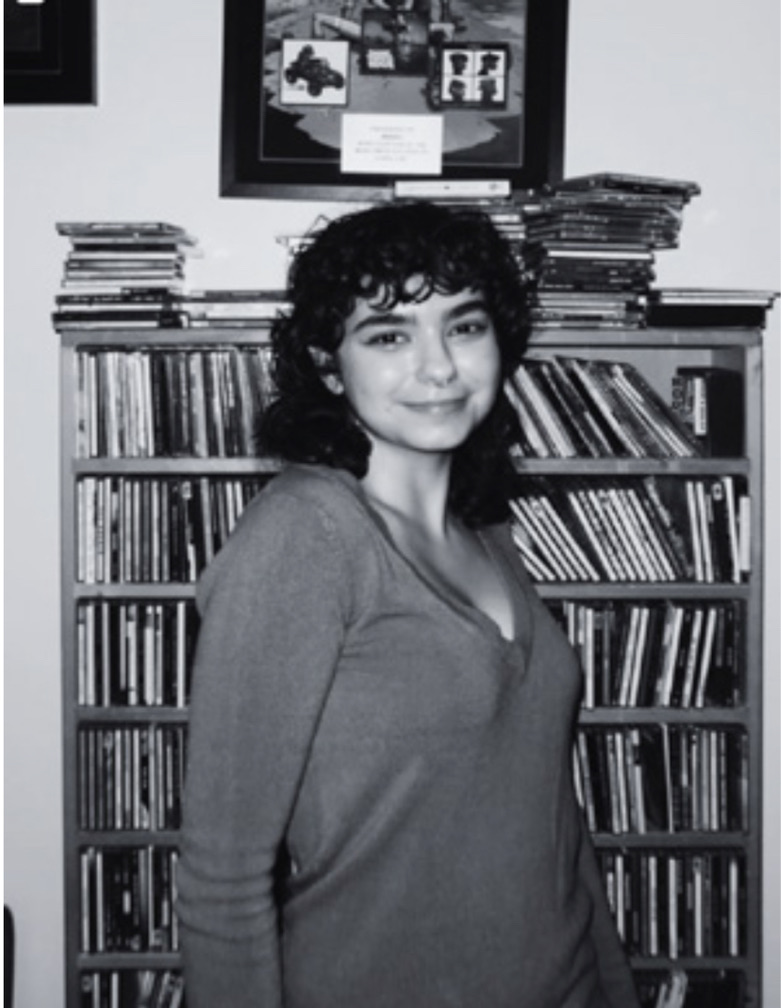Click through the following spotlights to learn more about each student and their commitment to reinvigorating the Brown Journal of History (BJH).
Department of History
Date
October 15, 2024
Meet the Brown Journal of History's New Leadership Team!
Get to know the undergraduate student leaders behind the relaunch of the Brown Journal of History (BJH).

1
of
1
Pictured from left to right: Sofia Barnett '25; Katherine Williams '25.5; Tyler Tjan '26; and Alexandra Maria Gomberg Shkolnikova '26
 Sofia Barnett is managing editor of the Brown Journal of History, and a senior concentrating in history and English nonfiction. As a historian, Sofia is attracted to intersectional and conjunctural studies of history, as well as historiography and intellectual history — she views history as an inherently interdisciplinary field that must seriously reckon with both praxis and thought. For Sofia, the revitalization of the Brown Journal of History is an opportunity for critical re-imagination.
Sofia Barnett is managing editor of the Brown Journal of History, and a senior concentrating in history and English nonfiction. As a historian, Sofia is attracted to intersectional and conjunctural studies of history, as well as historiography and intellectual history — she views history as an inherently interdisciplinary field that must seriously reckon with both praxis and thought. For Sofia, the revitalization of the Brown Journal of History is an opportunity for critical re-imagination.
 “I love to talk to my classmates in history courses about what they are planning on doing for their final projects. Many of the classes that I have taken in the history department allow students quite a lot of freedom to write about questions of personal interest, which means that come end-of-semester, people’s personalities and unique intellectual interests start to peek through in pretty exciting ways. I often end up looking back and wondering, “What happened to that paper about Bohemian meade?” or ceremonial burial urns, that had made me not-so-secretly envious of my classmates’ ideas as I was struggling to come up with my own. Coming from all different academic and personal backgrounds, people at Brown who end up working on projects that are in one way or another historical in nature, character or method, have an incredible variety of perspectives to share. My hope is that the BJH can become a forum to display this intellectual diversity.”
“I love to talk to my classmates in history courses about what they are planning on doing for their final projects. Many of the classes that I have taken in the history department allow students quite a lot of freedom to write about questions of personal interest, which means that come end-of-semester, people’s personalities and unique intellectual interests start to peek through in pretty exciting ways. I often end up looking back and wondering, “What happened to that paper about Bohemian meade?” or ceremonial burial urns, that had made me not-so-secretly envious of my classmates’ ideas as I was struggling to come up with my own. Coming from all different academic and personal backgrounds, people at Brown who end up working on projects that are in one way or another historical in nature, character or method, have an incredible variety of perspectives to share. My hope is that the BJH can become a forum to display this intellectual diversity.”